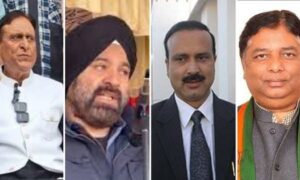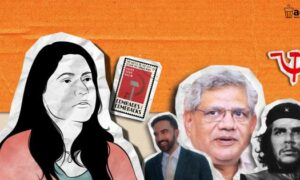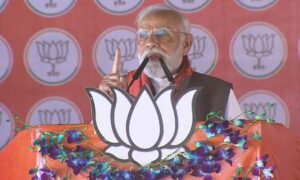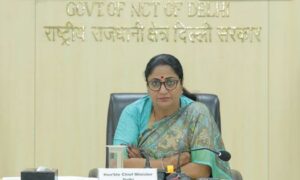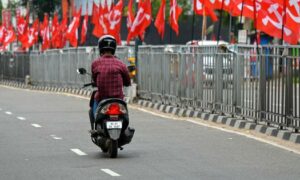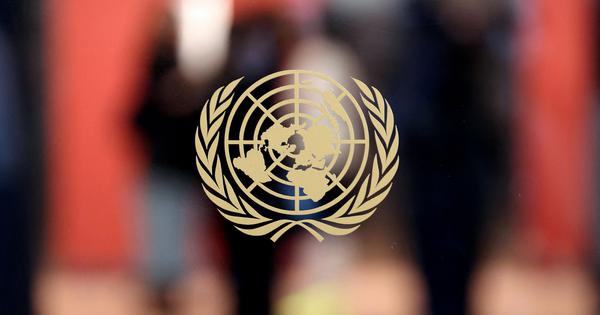
As the United Nations turns 80 on October 24, we stand at a paradoxical moment. Never has the world been in greater need of a universal forum of diplomacy, mediation, coordination and norm-setting. And yet, never has that same forum looked so strained, divided, fragile and contested.
In a world convulsed by climate breakdown, migration surges, pandemics, food insecurity and escalating war, the United Nation’s mandate is still indispensable. Yet its capacity is badly weakened by great power rivalry, nationalist backlash, financial shortfalls and institutional inertia.
On this milestone birthday, it is time to restate not only why the United Nations must be defended, but how we must act if it is to matter for the next 80 years.
From its founding, the United nations was conceived as humanity’s insurance policy against global catastrophe, a place where sovereign states could convene, negotiate and bind themselves to rules. Its achievements have been real: peace treaties, humanitarian relief, global standard setting on human rights, climate frameworks, and agencies like the World Health Organisation, the United Nations Children’s Fund or Unicef, and the United Nations High Commissioner for Refugees that reach into the world’s worst crises. The United Nations is more than an association of governments: it is a symbol of shared obligations and a mechanism for collective action in a fragmented world.
But over the past decade, and especially in recent years, a perfect storm has battered the institution. Its budget has shrunk, its political weight has diminished, and its internal legitimacy has eroded. In 2025, the United Nations system’s resource envelope fell by an estimated 30% compared to 2023, further tightening the squeeze on humanitarian and development programs already stretched by multiple overlapping crises. A United Nations official recently called to invite me to speak at an annual event in December, and just before ending the conversation, she mentioned that she might lose her job before the event.
The United Nations Secretary-General António Guterres has warned that the organisation faces a “race to bankruptcy” as he presents a sharply reduced $3.238 billion budget for 2026. This is 15% lower than 2025 due to mounting arrears and delayed member contributions. The United States, still the United Nations’s main financial underwriter, has repeatedly withheld funding, reduced both mandatory and discretionary contributions, and at times adopted a rhetorically hostile stance toward multilateral institutions.
The UN is in a “race to bankruptcy,” warns Secretary-General Guterres, unveiling a sharply reduced $3.2 billion budget for 2026 and urging Member States to pay their dues in full and on time.https://t.co/IeqglKUZdH
— UN News (@UN_News_Centre) October 17, 2025
Meanwhile, in Russia’s war against Ukraine and Israel’s war on Gaza, the Uni ted NationsSecurity Council has been paralysed, blocked by vetoes and double standards that have deeply undermined its credibility as an arbiter of legitimate force.
As the geopolitical pendulum swings, the United Nations must navigate a world that no longer tolerates a Western-led international order. Instead, power is diffusing, legitimacy is contested, and multilateral norms are under assault. The rise of right-wing nationalist governments and populist politics feeds on anti-globalist sentiment. Leaders portray multilateralism as an elite project disconnected from national interests, and they often attack the United Nations as intrusive, ineffective or biased. In some capitals, particularly in the West, support for climate, migration, human rights, and multilateral institutions is shrinking or reversed entirely.
Against this backdrop, the United Nations’ normative authority is being tested. Can it still convene coalitions to respond to climate collapse? Can it enforce human rights standards when major powers flout them? Can it coordinate pandemic preparedness when trust is low and unilateral temptations are high? The answer is: only if we summon the political will to defend it. To let it erode is to surrender multilateral governance to fragmentation, instability, and might makes right.
Why is this moment so crucial? First, the interlocking crises we face demand cooperation across borders and domains. No single state can manage climate tipping points, health system collapse, supply chain shocks, or refugee flows on its own.
The United Nations provides a neutral platform to bring all countries, large and small into constructive dialogue, forging shared rules, data, burden sharing, and mechanisms for collective action.
Second, the United Nations’ moral legitimacy continues to matter: even when it lacks force, naming injustices, issuing norms, and providing legitimacy to collective agreements constrains abuse of power and creates political space for accountability. Third, without a properly working United Nations, the world is sliding into fragmented alliances or ad hoc blocs that reinforce polarisation, amplify geopolitical competition, and marginalize small and middle powers.
Yet defending the United Nations is not the same as defending the status quo. The institution must evolve. The “UN80” initiative by the secretary general is a modest but necessary attempt at renewal, rethinking financing, governance, reform of the secretariat, improved coordination, and a reset of the humanitarian architecture. But many of these reforms remain stalled, in part because the political appetite among leading states is weak. The danger is that UN80 becomes yet another generational promise that fades before delivering structural change.
Central to any real renewal is the question of democracy inside the United Nations itself. The organisation cannot credibly advocate democracy and human rights worldwide if its own decision-making structures remain hostage to the undemocratic use of power. The security council, in particular, symbolises this contradiction. While restructuring it may not be politically feasible, its functioning must be democratised. Decisions on war, peace, and sanctions should not be held hostage to the threat or blackmail of a single veto-wielding country. The veto was never meant to paralyse the system or shield states from accountability.
Jawaharlal Nehru attacking the racial inequality and discrimination at United Nations Conference in Paris (1948) pic.twitter.com/IBJ1qOxMGQ
— Nehruvian (@_nehruvian) October 20, 2025
A more democratic process, where decisions reflect the collective will of the security council’s majority, not the dominance of one power would restore both legitimacy and efficiency. The credibility of the entire United Nations system depends on ending this culture of impunity and imbalance.
The governments of the Global North must lead by example. They should increase predictable, long-term funding, honour their arrears, and leverage their influence at the United Nations to drive reform. They must resist the temptation to weaponise funding cuts for short-term politics. The United Nations must reclaim moral clarity and consistency. It cannot credibly stand for justice, peace, human rights, or climate if its flagship organs are corrupted by veto politics and double standards.
The major powers must be held accountable within the system they preside over. If the security council is to remain central, it must begin to cultivate norms around when vetoes may be restricted, especially in mass atrocity cases. The United Nations system must resist becoming a hostage to power politics.
To be clear: no global institution is perfect. The United Nations has flaws, inertia and bureaucratic bottlenecks. But in a world of cascading crises and rising fragmentation, there is no substitute. The alternatives are worse: a global order of raw contestation, where might dictates outcomes and small states are silenced, where climate action unravels, where pandemics spread unchecked, and where refugee flows destroy fragile states.
Without the United Nations, we lose our shared vehicle for collective self-preservation. The crises will not wait. The world needs the United Nations now more than ever and it is up to us to choose whether it survives or slides into irrelevance.
Ashok Swain is a professor of peace and conflict research at Uppsala University, Sweden.
📰 Crime Today News is proudly sponsored by DRYFRUIT & CO – A Brand by eFabby Global LLC
Design & Developed by Yes Mom Hosting

